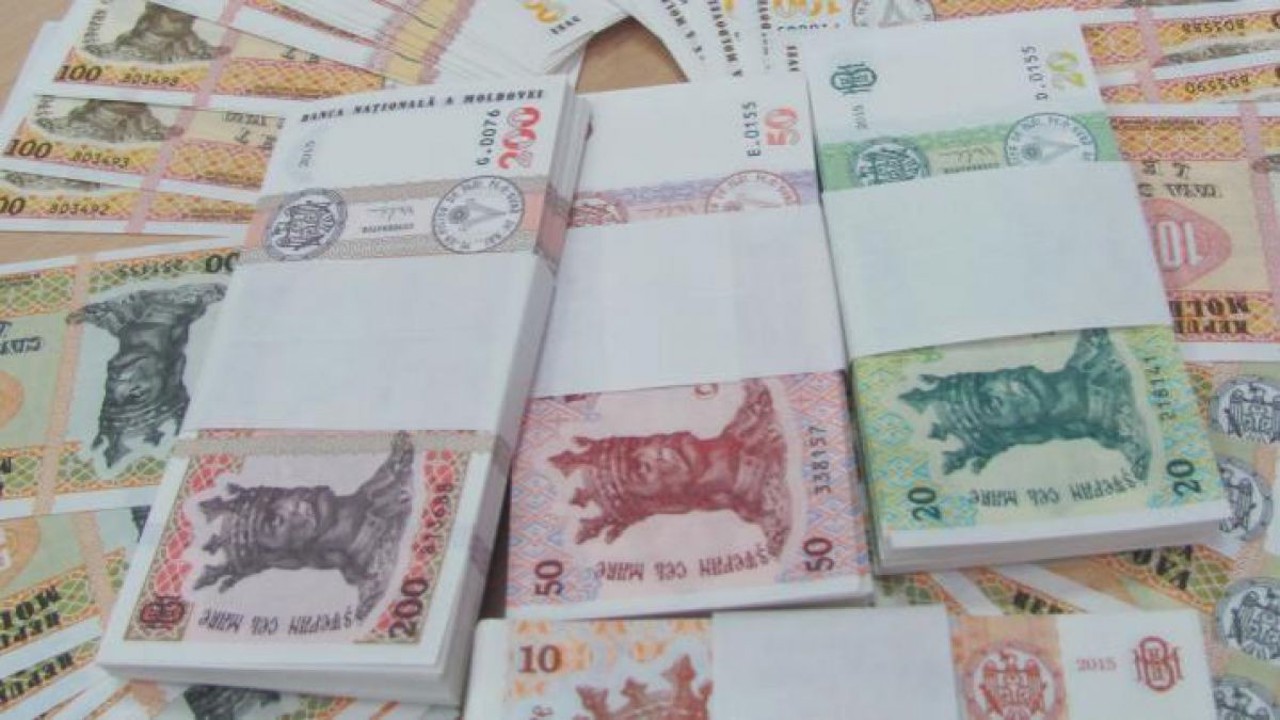Moldova trade unions push for 6,000 lei minimum wage
Trade union representatives will push for the establishment of a minimum wage of 6,000 lei in Parliament, after the Government approved 5,500 lei, which union leaders deem insufficient.

Sergiu Sainciuc, Vice President of the National Confederation of Trade Unions of Moldova (CNSM), told Teleradio-Moldova that union representatives are preparing proposed amendments to the budget drafts for discussion in Parliament, incorporating all requests made to the Government before the adoption of the 2025 budget package. These include raising the reference value to the minimum subsistence level—3,100 lei—and increasing public sector employees' salaries by 30 percent.
"A minimum wage should provide at least a minimum pension for employees. This year, the state budget allocates 2.4 billion lei to the state social insurance fund to bridge the gap to the minimum pension. If the minimum pension is indexed at 6.1% from April 1, 2025, a 6,000 lei minimum wage would cover the increased minimum pension," Sainciuc said.
Another argument is that the minimum wage should cover the subsistence level, which is currently 3,100 lei for an adult and 2,960 lei for a child. "A family typically consists of two adults and two children. In this case, the subsistence level for an employee is 3,100 lei, and for a child it is 2,960 lei. Together, this amounts to over 6,000 lei," Sainciuc added.
He also pointed out that in the first nine months of this year, the average wage in the economy increased by approximately 15%, indicating that there were additional funds for the state budget, social insurance budget, and health insurance budget from taxes, contributions, and insurance premiums, which could support raising the reference values of the minimum wage to 6,000 lei.
Sainciuc referred to the EU Directive, which stipulates that the minimum wage should eventually constitute 50 percent of the average wage. However, Moldova is far from reaching this target. "This year, the proportion stands at 36.5%, and next year, if the minimum wage is 5,500 lei and the projected average salary is 16,500 lei, this proportion will not rise but will fall to 34%, marking a setback, and it is unclear when we will meet the goal of achieving 50% of the average wage."
Sergiu Sainciuc expressed hope that parliamentarians would consider the requests of both the unions and employers. "Moving forward, we will collaborate with Parliament and the parliamentary committee to persuade them to implement changes and secure additional funds to raise the reference values and amend the national minimum wage," he said.
Sainciuc ruled out organizing protests at this stage, stating that the issue could be resolved through negotiation. "It is important for us to address the problem at the discussion and consultation table, not elsewhere. We have been convinced that we can resolve the issue through persuasion. But we have many options available," Sainciuc added.
On Wednesday, before the Government's meeting, Prime Minister Dorin Recean met with representatives from the CNSM and the Confederation of Employers.
Later, the Cabinet of Ministers approved the draft State Budget Law for 2025, which includes a 15% salary increase for medical staff and about 10% for educators, some employees of law enforcement agencies, and other public sector employees. According to the document, the base reference value for calculating salaries in the budget sector will be increased by about 5% compared to 2024—from 2,100 lei to 2,200 lei—and the minimum wage in the budget sector will rise from 5,000 lei to 5,500 lei.
The package of budgetary laws is expected to be approved by Parliament in upcoming sessions, with final approval anticipated by the end of the year.
Translation by Iurie Tataru





